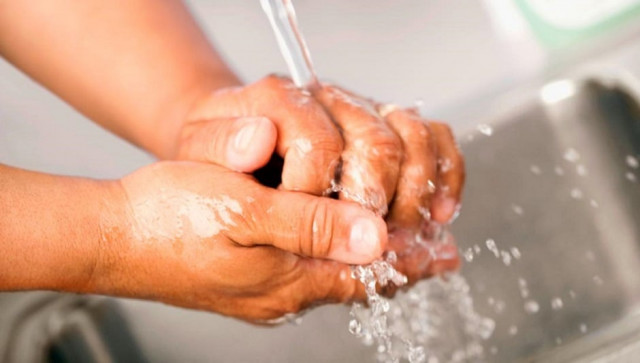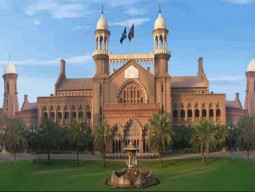
The practice has been ongoing since 2008, when the Global Handwashing Partnership (GHP) - a coalition of international stakeholders - organised the first such event in Stockholm, Sweden. The question that arises here is - Can a single day bring about change in society? Or is there a need for a sustainable approach that effectively combats a large number of diseases that are prevalent due to the lack of this practice.
"I am often alarmed when I see practicing doctors who don't wash hands after checking a patient. In this way, they are transferring diseases from one person to other," said Nadeem Ahmed, who works on sanitation and hygiene issues.
Worrying numbers
According to the United Nations Children's Fund (UNICEF) and the World Health Organisation (WHO), around 3 billion people - 40 per cent of the world population - don't have access to running water and soap to wash their hands. According to a report, jointly published in the current year by the two organisations, at least 40 per cent of Pakistanis are at risk of contracting various preventable diseases as they are denied access to basic hygiene facilitates. "Hardly 20 per cent of the people in Pakistan wash their hands with soap," lamented Ahmed, adding that the government should include the importance of "hand washing" in the education curriculum.
Ahmed was of the view that approximately 1 in 5 (19 per cent) people wash their hands with soap after defecating in Pakistan. Doing so reduces the risk of diarrhoeal diseases by 42-47 per cent. "Lack of access to sanitation and poor hygiene contribute to approximately 88% of childhood deaths caused by diarrhoeal diseases," he said.
According to a report issued by the Education Management Information System, one in three government schools in Pakistan lack sanitation facilities. This leads to unhygienic conditions resulting in the spread of various diseases, which claim the lives of 46 children every single day in the country.
A sustainable goal?
'Water and sanitation' stands at number six on the list of 17 Sustainable Development Goals (SDGs) set by the United Nations General Assembly in 2015. According to a senior official in the Sindh government, there has been no significant progress when it comes to achieving the sustainable development goals in the province.
"The provincial government has formed a sustainable development goals unit comprising various MPAs, but one can't see any positive change," lamented an official working in the planning and development department, requesting not to be named.
The official referred to 426 federal government schools in Islamabad that have included sanitation, hygiene and significance of hand washing practices in the syllabus. "After the 18th Amendment, the education department has been devolved to the provincial government. Sindh must take the lead in revising the curriculum and incorporating the importance of hand washing. Otherwise, the one-day activity on the agenda of specific donors can't make a difference," he said.
The education conundrum
There are more than 42,000 government schools in Sindh, a large number of which are deprived of basic facilities. Dr Fouzia Khan, who heads the curriculum wing of the Sindh Education and Literacy Department, told The Express Tribune that they have designed and included the importance of hand washing at government schools in the province. "We have revised the syllabus two years ago and teachers teach the students about it," she said.
However, she had no idea about which class or textbook the importance of hand-washing practices are being taught. When this correspondent checked the government primary school books of the Sindh Textbook Board Jamshoro, there were hardly a few paragraphs in the class two textbook and that too on general cleanliness and health. There was no specific mention of hand washing.
"I don't know whether there was any lesson in the primary school books on hand washing. We only teach students how to brush their teeth, take care of their health and boil water before drinking," said the headmaster of a government primary school in Karachi.
Published in The Express Tribune, October 17th, 2019.






1726054615-0/OpenAI-(2)1726054615-0-270x192.webp)











COMMENTS
Comments are moderated and generally will be posted if they are on-topic and not abusive.
For more information, please see our Comments FAQ